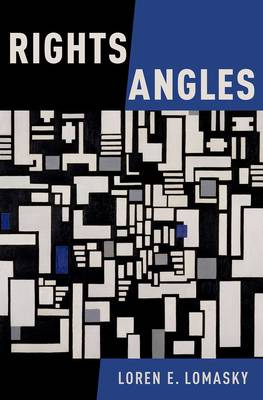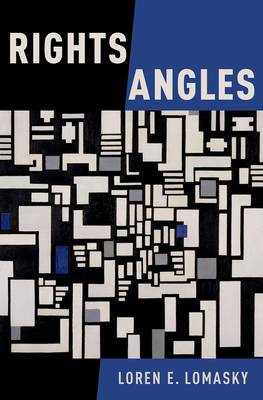
Door een staking bij bpost kan je online bestelling op dit moment iets langer onderweg zijn dan voorzien. Dringend iets nodig? Onze winkels ontvangen jou met open armen!
- Afhalen na 1 uur in een winkel met voorraad
- Gratis thuislevering in België vanaf € 30
- Ruim aanbod met 7 miljoen producten
Door een staking bij bpost kan je online bestelling op dit moment iets langer onderweg zijn dan voorzien. Dringend iets nodig? Onze winkels ontvangen jou met open armen!
- Afhalen na 1 uur in een winkel met voorraad
- Gratis thuislevering in België vanaf € 30
- Ruim aanbod met 7 miljoen producten
Zoeken
Omschrijving
Loren Lomasky is a leading advocate of a rights-based libertarian approach to political and social issues. This volume collects fifteen of his articles that have appeared since his influential volume Persons, Rights, and the Moral Community (OUP, 1987) alongside one new essay. The volume represents Lomasky's more recent efforts at constructing the underpinnings of liberal rights theory, in which he formulates a series of questions about the nature and scope of rights and rights holders. Among the questions Lomasky addresses: In what way is classical utilitarianism fundamentally illiberal? To what extent might utilitarian cost-benefit analyses be admissible within rights-upholding political theory? Does it even make sense to speak of maximizing liberty? How can this be understood in Hobbesian, Kantian, and Rawlsian theoretical settings? In a world in which rights-talk is ubiquitous, what is the role of traditional virtues such as loyalty and charity? Is it inconsistent to espouse both an austere classical liberalism and a social safety net? Liberalism is most often presented as a theory about the internal contours of the state, but how does it speak to the relationships between one state and another? Between the state and would-be immigrants? In a world displaying massive cross-border inequalities, does justice require the extension of aid from the rich to the poor? The book opens with an unpublished essay, "Everything Old is New Again: The Death and Rebirth of Classical Liberalism," which features a history of the century-long decline of traditional liberalism and its remarkable, unanticipated return to vitality in the second half of the 20th century. It then offers the prospectus for a libertarian research program for the next half century. "Lomasky is one of the most brilliant political philosophers of his generation and also has a great gift with the pen. He instead picks away at bad arguments and bad rhetoric whether in general agreement with his priors or not. And he likes to entertain unusual twists on arguments. The upshot is a wonderful journey through deep questions in political philosophy and organization."-Peter Boettke, University Professor of Economics & Philosophy, George Mason University
Specificaties
Betrokkenen
- Auteur(s):
- Uitgeverij:
Inhoud
- Aantal bladzijden:
- 402
- Taal:
- Engels
Eigenschappen
- Productcode (EAN):
- 9780190263959
- Verschijningsdatum:
- 1/06/2016
- Uitvoering:
- Hardcover
- Formaat:
- Genaaid
- Afmetingen:
- 163 mm x 239 mm
- Gewicht:
- 680 g

Alleen bij Standaard Boekhandel
+ 435 punten op je klantenkaart van Standaard Boekhandel
Beoordelingen
We publiceren alleen reviews die voldoen aan de voorwaarden voor reviews. Bekijk onze voorwaarden voor reviews.











